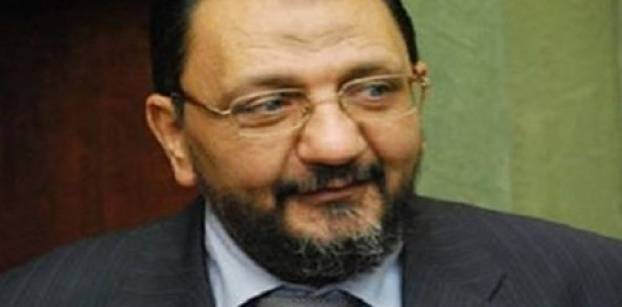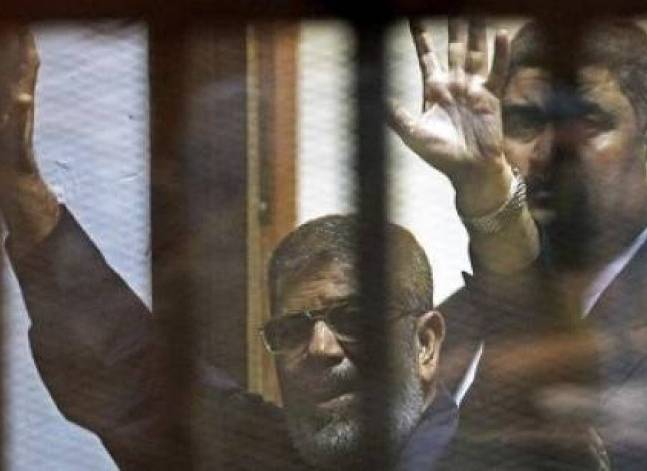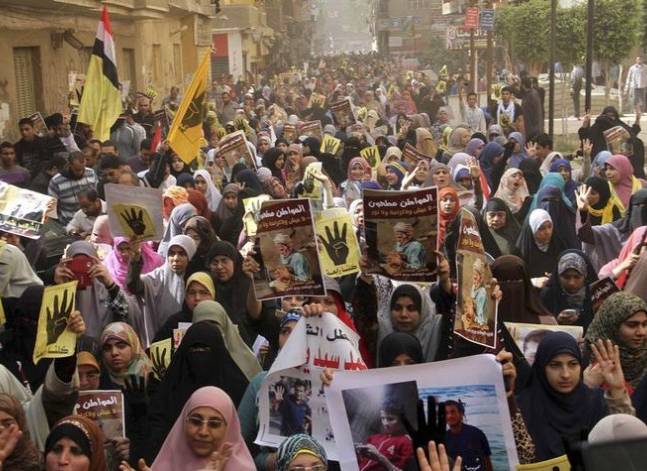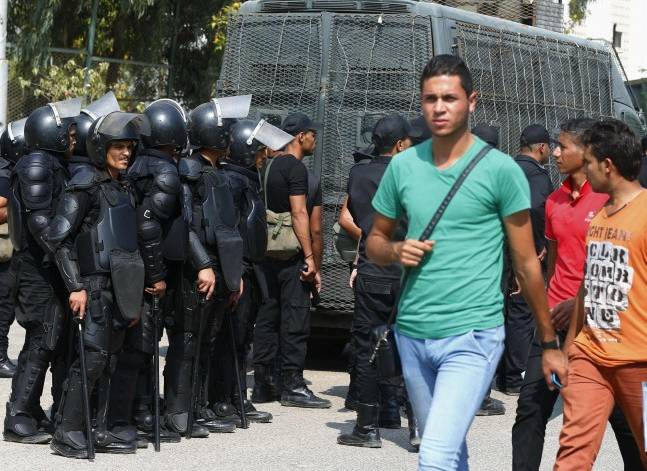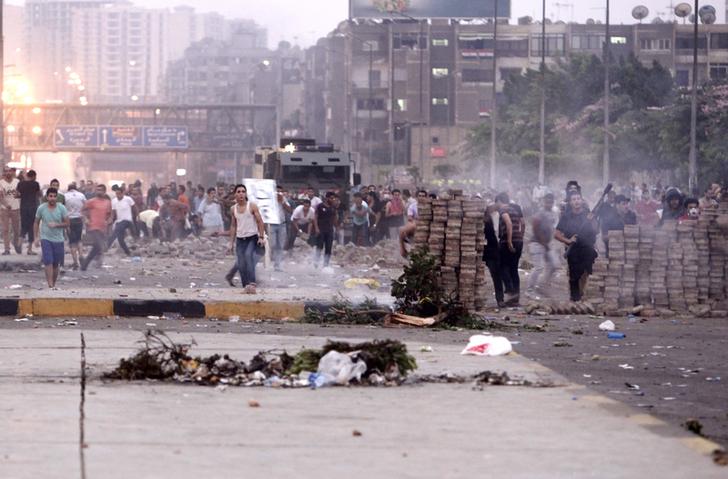Latest NEWS
- Aswat Masriya, the last word
- Roundup of Egypt's press headlines on March 15, 2017
- Roundup of Egypt's press headlines on March 14, 2017
- Former Egyptian President Hosni Mubarak to be released: lawyer
- Roundup of Egypt's press headlines on March 13, 2017
- Egypt's capital set to grow by half a million in 2017
- Egypt's wheat reserves to double with start of harvest -supply min
- Roundup of Egypt's press headlines on March 12, 2017
Muslim Brotherhood leader killed in 'exchange of fire' - MOI
CAIRO, Oct. 4 (Aswat Masriya) - Ambiguity surrounded the death of Muslim Brotherhood leader Mohamed Kamal, after Egypt's Interior Ministry announced his killing in an exchange of fire early Tuesday, a few hours after he was reported arrested.
The Interior Ministry said it killed Kamal and another Brotherhood member in an "exchange of fire" at their "hideout" in a Cairo suburb in a statement on Tuesday.
The ministry said that Kamal and Yasser Shehata, both charged on several offences, were hiding at an apartment in Basateen area and fired at security forces when they raided the apartment, leading to the exchange of fire.
The ministry said it had been searching in the past days for the hideout, where brotherhood "militias" allegedly plan and coordinate attacks.
A few hours prior to the ministry's statement, news reports circulated about the arrest of both Kamal and Shehata.
On Monday night, Youm7 cited "informed sources," who said that both had been arrested in an East Cairo suburb, where they had been hiding.
The Brotherhood's now dissolved political arm, the Freedom and Justice Party, accused security forces of committing a crime as Kamal and Shehata were reportedly arrested prior to their killing, which amounts to "extrajudicial execution."
In its statement early Tuesday, the FJP said security forces are attempting to "mislead public opinion" by announcing Kamal's murder after reporting his arrest.
Kamal was a member of the Muslim Brotherhood Guidance Bureau and held several leadership posts in the now-banned group. The interior ministry said he was in charge of the "armed Brotherhood militias."
He was sentenced to life imprisonment in two cases, and was among those accused of assassinating the former prosecutor general Hisham Barakat as well as the assassination attempt against Egypt's Grand Mufti.
Shehata was closely affiliated with Kamal and was entrusted with his safety, the MOI said. He had been given a 10-year prison sentence in absentia.
In July 2015, the interior ministry announced the death of nine Brotherhood leaders in a security raid on an apartment in Cairo's October 6 suburb; in a somewhat similar chain of events.
The ministry said at the time that they were holding a meeting to discuss "plots to carry out terrorist attacks" and accused them of shooting at the police as the apartment was raided.
Human Rights Watch described the incident as a potential "extrajudicial execution" and said it spoke to relatives and other witnesses who said the nine men were arrested, fingerprinted and tortured before security forces killed them.
Egypt listed the Brotherhood as a terrorist organisation in December 2013 and insists it is behind the wave of militancy which has targeted security personnel since July 2013.
Mohammed Mursi, who hails from the Brotherhood, was ousted by the military in July 2013 following mass protests against his rule.
The Egyptian government has led a heavy crackdown on Brotherhood members and supporters ever since, with hundreds convicted and many others detained pending investigation.

